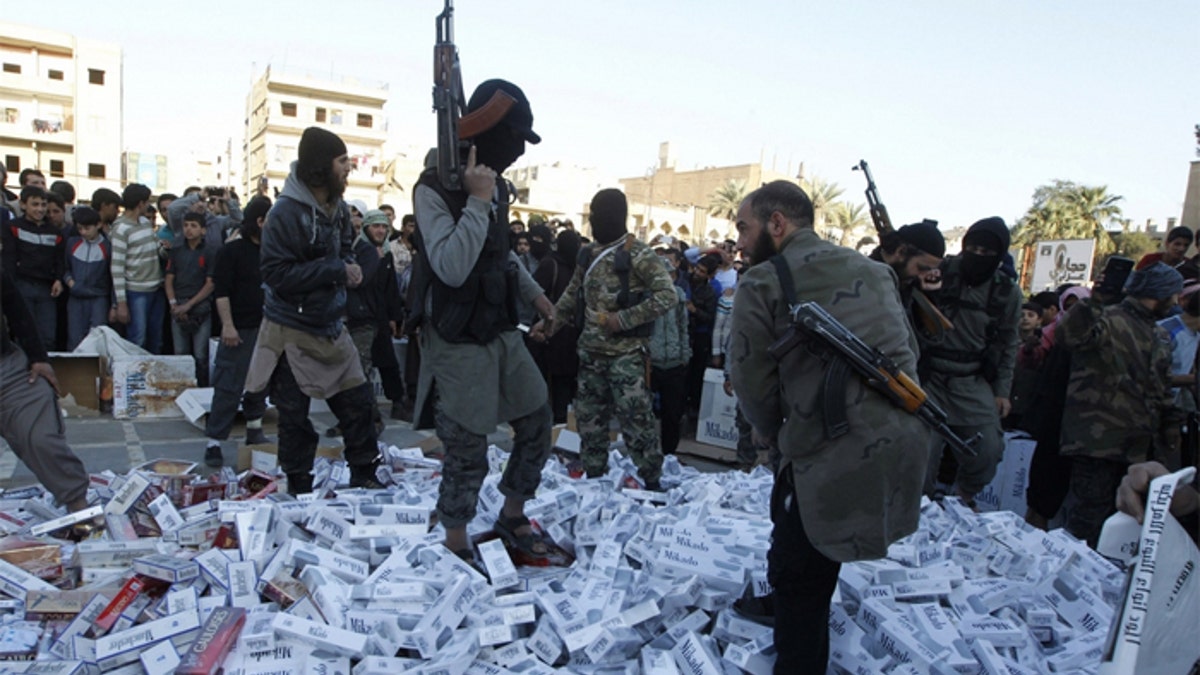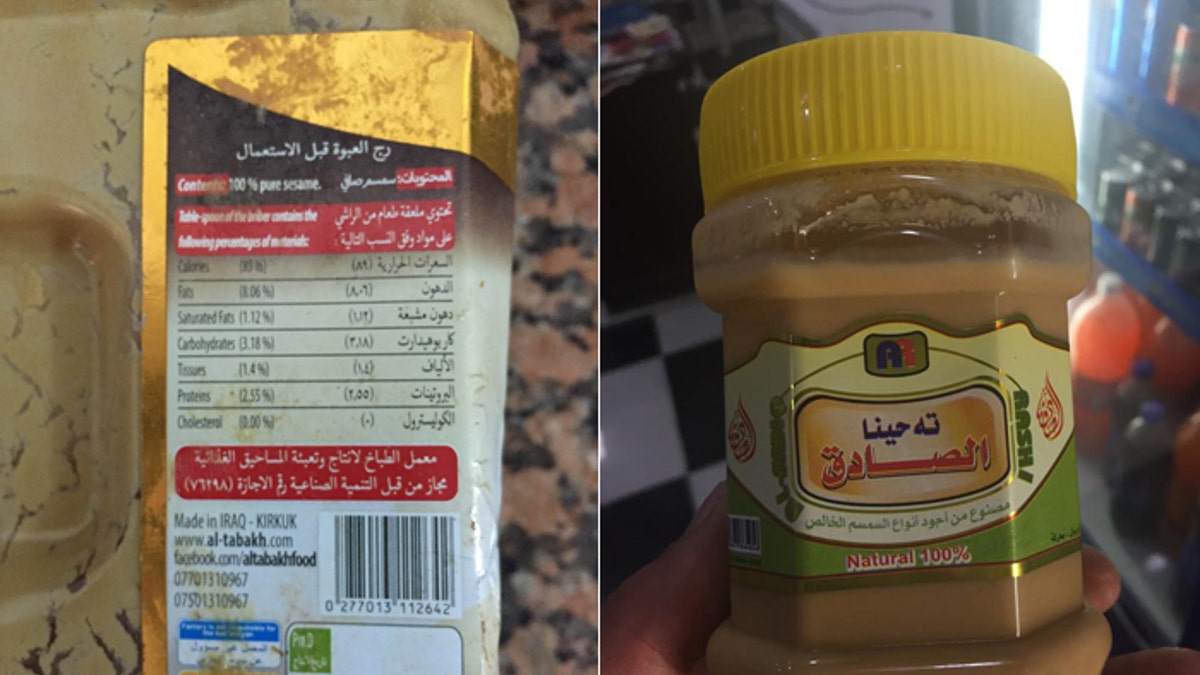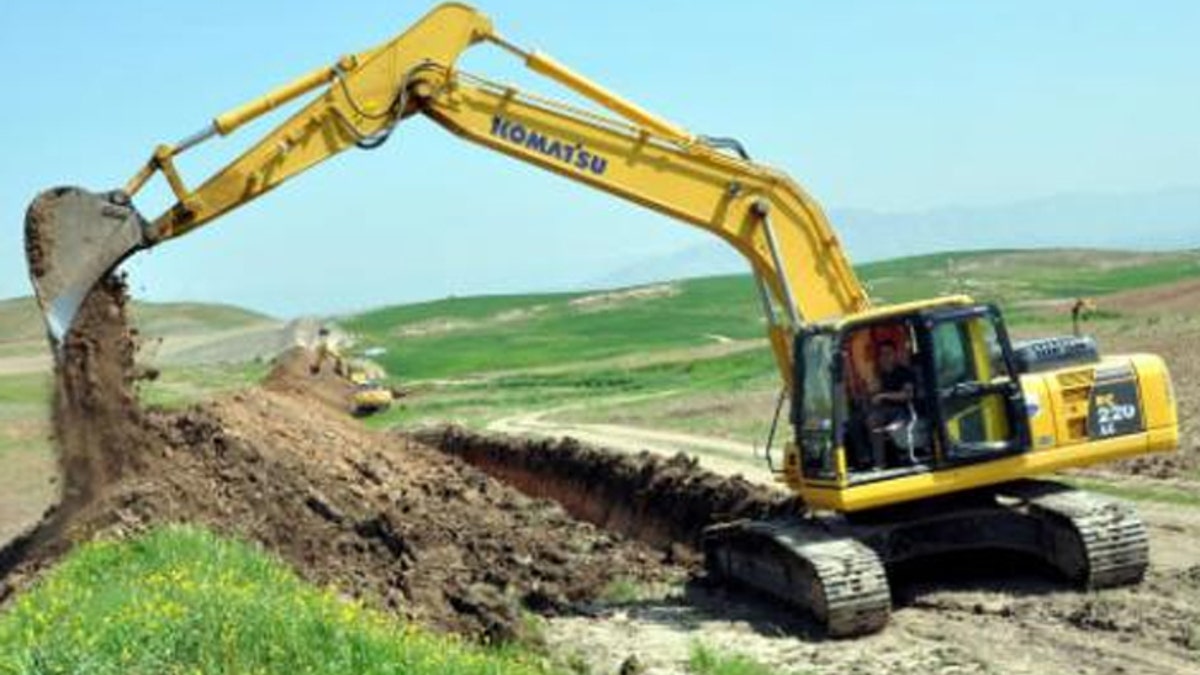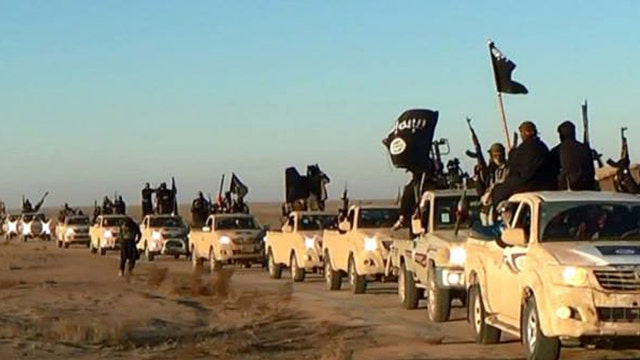Official: ISIS may control more territory than last year
Jennifer Griffin reports from the Pentagon
The Islamic State economy is more than just black market oil, plundered artifacts and stolen money: A steady stream of goods ranging from sesame paste to leather and fabrics is making its way out of the caliphate and onto store shelves around the world, say experts.
Before the rise of ISIS, the regions it now dominates in northern Iraq and Syria were noted for several specialty products. Olive oil, soap, textiles and a popular bread and cracker spread called tahini were among the region’s main exports. Fewer goods are trickling out now that ISIS is in charge, but there is ample evidence that manufacturing and export of goods for which the region has long been noted continues.
“Currently the international community is focusing on oil, drugs, archeological artifacts and ransom money,” said Daniel Koehler, director of the German Institute on Radicalization and De-Radicalization Studies. “Islamic State will not be able to finance their costs with agricultural products or other locally produced goods.”
“ISIL will seek to profit from any natural or economic resources available in the territory it controls.”
There can be little doubt that profits from oil and artifacts go to the terrorist group, but food and clothing items made in cities such as the Iraqi city of Mosul and ISIS’ Syrian stronghold of Raqqa, are likely a remnant of the old economy, and a likely means for workers stuck under the boot of ISIS to continue to scratch out a living, said experts. But the terrorist organization, through bribes and taxes, undoubtedly takes its cut of everything from olive oil to leather goods, even as it depends on bigger ticket items to finance its war machine.
“ISIL will seek to profit from any natural or economic resources available in the territory it controls,” a spokesperson for the U.S. Department of the Treasury’s Office Terrorism and Financial Intelligence told FoxNews.com.
Dubai-based news organization Al-Arabiya recently reported that the tahini and other foodstuffs were moving from ISIS-held territories into the international market and showing up as far away as Canada. Experts who talked to FoxNews.com were not surprised.

Smuggled goods come in to Islamic State, too. I addition to auto parts, weapons and tools, cigarettes have been carried, such as these, which ISIS fighters set on fire to enforce a ban on smoking. (Reuters)
“Without having the ability to track the origin of the goods, how can you argue the case that it can’t end up on the shelf of Walmart and other supermarket chains as far afield as North America?” global security expert Lee Oughton, who is currently based in Iraq, told FoxNews.com. “In Europe, it would be a dead certainty that they have products that have emerged from the black market.”
While much is known about how ISIS smuggles discounted oil through an elaborate network of middle men onto the mainstream market, little is known about the origins of food products and natural resources potentially coming out of the ISIS-controlled townships – or how it leaves.
The sheer amount of commerce crossing both in and out of the caliphate is a strong indication that merchants within are getting help. Exports are clearly getting through Kurdish-held land to Turkey, with the aid of a range of groups that put profit above all else. As before the rise of ISIS or the civil war in Syria, bribes – the time-honored system known as “baksheesh” -- grease the path, as guards allow trucks laden with goods, cash and people cross regional lines.
Last year, after capturing several oil smugglers who were getting their product to Turkey, Kurdish forces created a symbolic, 10-mile border called “the ditch” along its border with ISIS-held land in Syria. Although the 3-meter deep, 2-meter wide (9-by-6 foot) trench was dug at a frequently used crossing point, it was still seen as largely symbolic and has done little to stop the flow of goods.
“It doesn’t mean business has ended,” said Yakhi Hamza, a Kurdish-Iraq businessman and country director for 1st North American Expeditionary Force, a not-for-profit which offers advisory training to forces and organizations in conflict zones. “There is a possibility that products [from ISIS-held territory] are making it to Western markets.

Experts suspect goods manufactured in ISIS-held territory are smuggled out of the caliphate and repackaged before being sold throughout the Middle East and even Europe.
“They could get manifested and clean papered in Turkey and Jordan and sold to the international market at full price,” Hamza added.
Because Islamic State spans parts of two countries, remnants of two different pre-conflict commerce streams remain.
Prior to the outbreak of Syria’s civil war in 2011, the country had strong import and export ties with numerous countries from Lebanon and Saudi Arabia, to Germany, Italy, Russia and China – with items such as the spice cumin famously exported around the globe, in addition to textiles, cotton fiber, meats and minerals.

A long ditch Kurds dug last year along their border with Islamic State is largely symbolic and has not stemmed the flow of goods - both ways. (Reuters)
"Frontline guards usually take a cut” from goods coming out of ISIS regions, said Jacob Simkin, an Australian journalist and photographer who has spent the last two years documenting the conflict inside Syria. “One of the things ISIS exports is olives, they are dry-picked and transport via trucks to Aleppo to the rebel side. Rebels can use it to make soap or also make olive oil; there are factories that will make them.”
The complex web of bribes, sectarian alliances, smuggling routes and the chaos of conflict has many experts questioning any government’s ability to keep appropriate tabs on supplies, as even U.S. humanitarian aid – mostly food and medical supplies – has found its way into ISIS' black market, been re-branded and distributed to galvanize the support of its populace.
And while the export issue and how far west these products trickle is shrouded in uncertainty, it is an issue that experts agree is of increasing concern.
“The Islamic State is following the same prototype as organized crime networks. Veryan Khan, editorial director for the Florida-based Terrorism Research & Analysis Consortium. "No matter what the cash flow is for the Islamic State, we need to be painstakingly watching the flow in and the flow out, disrupting whenever possible, be it fighters, oil or goods.”









































